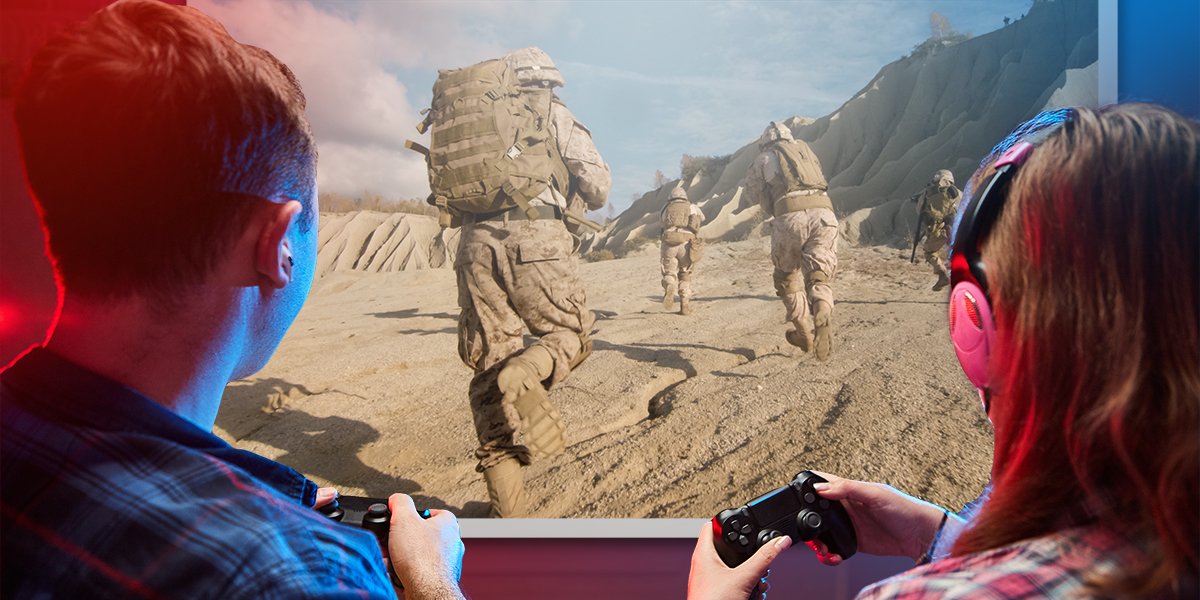

Gaming projectors have evolved so much over the last few years, they’re now equal to TVs in terms of input latency, resolution, HDR, and smart features. However, projectors are by far superior in several key areas that are very pertinent for gaming. First off, screen size. There’s no way you’ll be able to pair your PS5 or Xbox Series console with a 120” flat screen TV without taking out a loan at the World Bank, that’s assuming you can find a TV in that size class. Projectors easily showcase your games on an image format that big or even larger while costing considerably less than the biggest TVs, which usually top out at 85” or so. Cost per inch, projectors beat TVs without even breaking a sweat.
Projectors are also easily quite bright, with a good gaming projector delivering 3000 lumens, which is around 800 nits. Not many TVs are able to consistently provide that kind of brightness, and it’s more than sufficient for good HDR.

The impact of enjoying games on a screen that’s more than twice the size of the average gaming TV can’t be understated. All things being equal, games feel and play much more impressive on a larger screen. And since gaming projectors have reached parity with gaming-minded TVs in most areas, things are indeed equal. However, not every projector that labels itself “gaming” deserves your attention. Proper gaming projectors have very specific features and capabilities that you need to remain mindful of. Let’s quickly look at those.
For most people, the total lag between pressing a button on a PS5 or Xbox Series controller and having the game respond to that on-screen should be less than 40ms. Thankfully, most good gaming TVs and projectors now have input lag of less than 20ms. And the really good ones go lower than that. The BenQ X3000i and TK700STi manages native 4K 60Hz with 16ms, even offers 1080p 120Hz with 8ms and 240Hz with 4ms of total input latency. That’s not even noticeable and nearly worthy of e-sports class gaming. Without low input lag, games may feel sluggish and unresponsive to the point of being unplayable.
Also, up to 4ms and such fast response times, ghosting is not an issue at all. Ghosting refers to the smearing effect you get with moving visuals on a display device that’s too slow to update the screen in keeping up with input from the game. This hasn’t been an issue for TVs for a while for the most part, and now it’s not an issue with good gaming projectors, either.
BenQ gaming projectors have proven their merit in providing for responsive gaming experiences, and so there’s little wonder they keep making the “best of” lists.
Once upon a time TVs had the edge in resolution, but now gaming projectors have closed that gap. If you can, try getting a native 4K 60Hz projector like the BenQ X3000i and TK700STi. That’s because most games on PS5 and Xbox Series X target 4K 60Hz. Sure, there are a few games that go up to 120Hz in 4K, but they’re quite rare and we believe for most of the current console generation 4K 60Hz will be the sweet spot.
You may opt for a 1080p 120Hz/240Hz projector if you prefer to run games in higher refresh rates. That’s especially true if you set your PS5 to performance mode or actually want to go with an Xbox Series S, a great little console designed for 120Hz refresh in up to 1440p, but mostly 1080p if we’re being realistic. While 144Hz gaming projectors and TVs are not yet available, you can certainly enjoy 120Hz refresh on a massive screen right now so there’s no need to think twice. Gaming projectors are no longer limited to 60 frames per second as was the case not so long ago.
Since the PS5 and Xbox Series consoles depend on internet connectivity, we strongly recommend you get a gaming projector that’s up with the times. The X3000i and TK700STi from BenQ have that little “i” in their names because they’re internet-ready, with built-in Wi-Fi and Bluetooth. No dongles or adapters needed, just hook up and log in. Make this a priority when shopping for a projector, as it’ll prove very useful later on for everything from updates to content streaming.
Yes, there’s a gaming projector out there that’s eager to give you the big screen experience you’re after. You just need to be aware of the vital specs and features we listed, as you don’t want something laggy or with low refresh rate. There’s a lot of projectors that are great for movies and TV but may not be so ideal for the specific needs of gaming, hence this article. Good luck and happy trails!